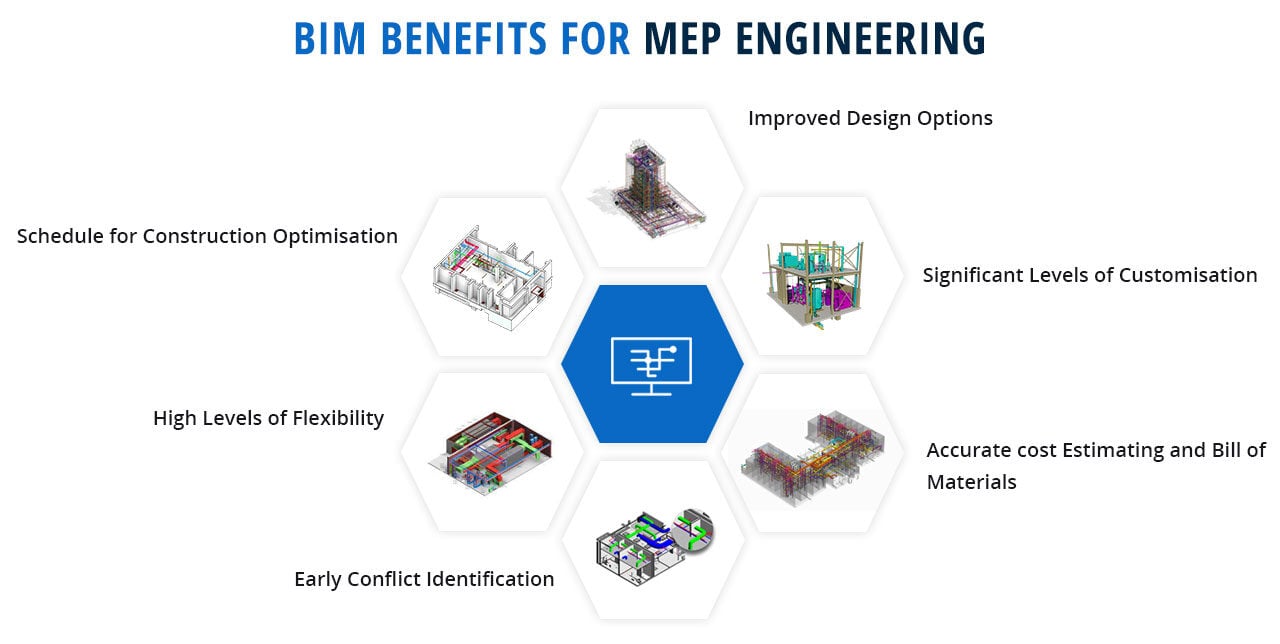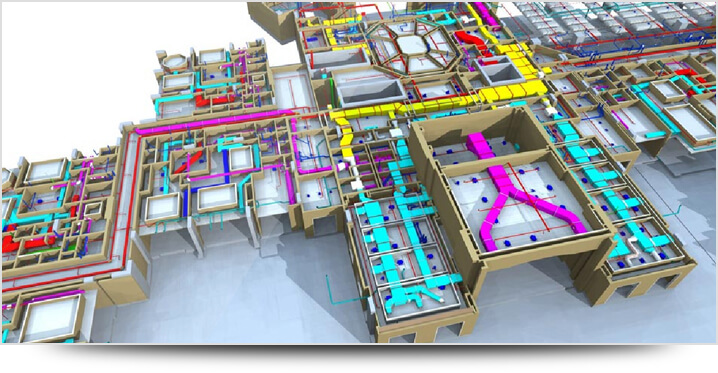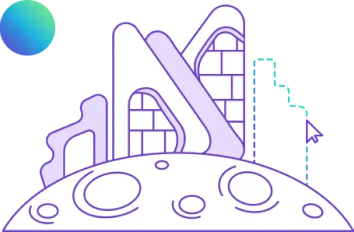15 Essential Questions to Prepare for a BIM Consultant Interview 2026
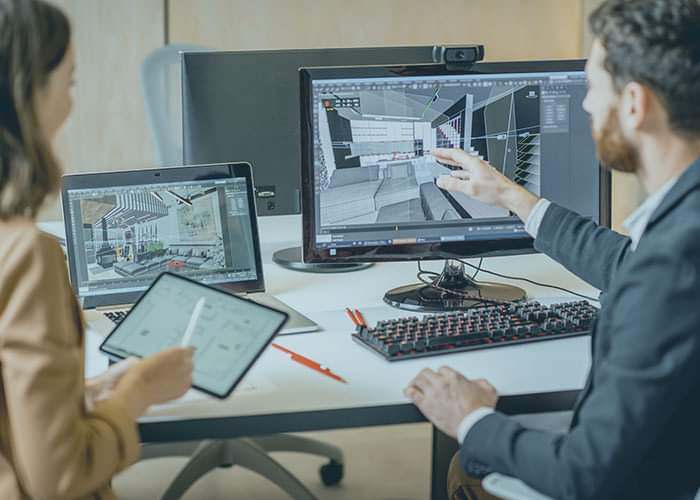
Table of Contents
Building Information Modelling (BIM) BIM is touted as the next big thing in design and construction and is becoming the most desired skill in the Architecture, Engineering, and Construction (AEC) industry. This has led to an increase in demand for BIM-skilled employees, specifically BIM consultants, a senior-level position that helps architecture and construction companies implement BIM in their processes and make them efficient.
Whether you are a fresh graduate or an experienced professional, preparing for a BIM consultant interview can be daunting. You must be worried about what should you expect from a BIM consultant interview and how should you prepare for it.
This guide covers Top BIM Consultant interview questions with sample answers, explaining the role, skills, responsibilities, and salary expectations of BIM consultants. It helps candidates prepare for technical, coordination, and soft-skill questions with confidence. Ideal for architects, civil engineers, BIM modelers, and fresh graduates aiming to secure high-paying BIM consultant roles and advance their careers through industry-relevant upskilling for global opportunities and growth worldwide.
Understanding the Role of a BIM Consultant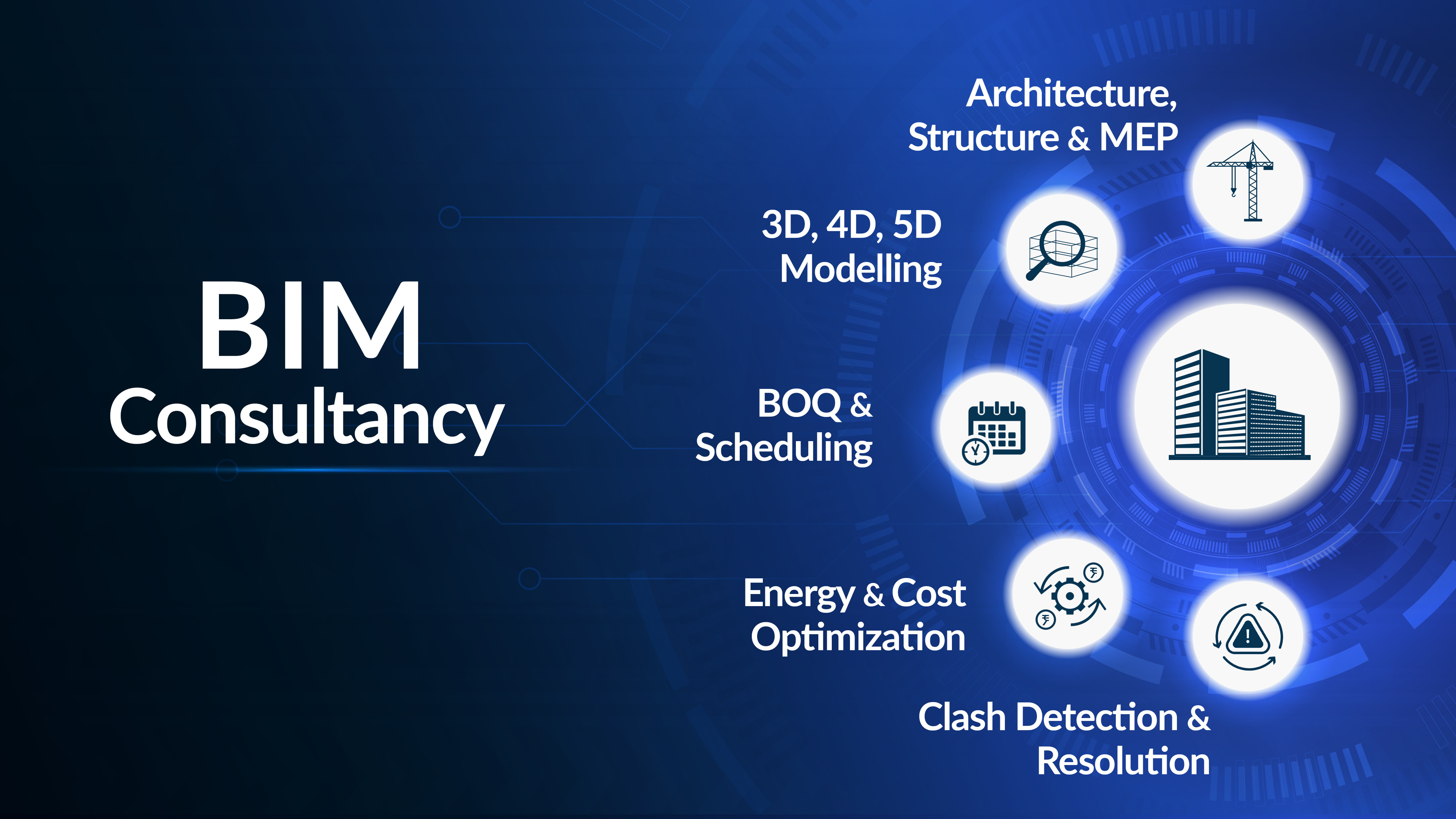
If you want to provide BIM consulting services as an AEC professional, let’s first understand what the role encompasses.
1. Who is a BIM Consultant?
A BIM Consultant advises and assists firms in implementing and managing BIM processes. They are responsible for facilitating the integration of BIM technology within an organisation, ensuring that all stakeholders—architects, engineers, contractors, and clients are utilising BIM to its fullest potential. BIM Consultants often have a strong background in architecture, engineering, or construction management, combined with expertise in BIM software and methodologies.
2. Scope of Work of a BIM Consultant
The scope of work for a BIM Consultant is extensive and varied, covering key responsibilities like:
- Developing and implementing BIM strategies tailored to an organisation’s needs. This includes creating BIM execution plans and setting up standards and protocols.
- Advising on the best BIM software tools such as Autodesk Revit, Navisworks, and BIM 360. Ensuring that all team members are trained and proficient in using these tools.
- Facilitating communication and collaboration among project stakeholders. This involves managing shared models, ensuring data consistency, and conducting coordination meetings to resolve clashes and issues.
- Establishing quality control processes to ensure that BIM models meet the required standards and specifications. Conducting regular audits and reviews to maintain data integrity.
- Assisting project managers in planning, scheduling, and tracking project progress using BIM data. Providing insights and analytics to improve decision-making and project outcomes.

3. What are the Skills Required to Become a BIM Consultant?
Here are several key skills and competencies for BIM Consultants:
- Extensive BIM software knowledge and familiarity with digital tools and technologies.
- Strong organisational and project management skills to handle multiple tasks and ensure projects stay on schedule and within budget.
- Excellent communication and interpersonal skills to facilitate collaboration among diverse project teams.
- Capability to resolve model clashes, manage data inconsistencies, and address workflow challenges.
- The ability to analyse project data and provide insights that enhance decision-making and project outcomes.
4. Salary of a BIM Consultant in India
While the salary of a BIM Consultant in India can vary based on factors like expertise, location, skill, and the organisation scale; here is the generic salary range for BIM consultant jobs:
- On average, an entry-level BIM Consultant can expect to earn between INR 4 and 6 lakhs per annum.
- With 5-7 years of experience and demonstrated expertise, BIM consultant salary can increase to between INR 8 and 15 lakhs per annum.
- Senior BIM Consultants with an experience of 10+ years, particularly those working with large multinational firms or on complex projects, can earn upwards of INR 20 lakhs per annum.
Also Check out: BIM Specialist: Roles, Salaries, and Courses to Become One
5 Generic Interview Preparation Tips for BIM Consultant Jobs
To answer BIM consultant interview questions confidently, you need more than software knowledge; you must understand the role, your past projects, and how to communicate your value clearly during the interview.
Global AEC firms are continually seeking BIM-skilled employees to support BIM processes and accelerate their companies’ progress. So, if you wish to work in one of those BIM consulting firms, here are some generic interview tips and tricks on how to crack BIM consultant job interviews.
1. Understand the Role and Responsibilities
Before appearing for the interview, it's crucial to have a comprehensive understanding of the BIM Consultant role and responsibilities the firm is looking for. Read and understand the key responsibilities in their BIM consultant job description, which typically includes developing BIM execution plans, managing BIM software, facilitating team collaboration, ensuring quality control, and supporting project management. Get acquainted with the specific requirements of the job you are applying for.
2. Refresh Your Technical Skills
BIM Consultant positions demand strong technical proficiency with various BIM software and tools. Ensure that you are skilled in software such as Autodesk Revit, Navisworks, BIM 360, Rhino, and Grasshopper. Review recent projects you’ve worked on, and be prepared to discuss specific examples where you utilised these tools to solve problems or enhance project outcomes.
3. Prepare to Discuss Industry Knowledge
For BIM Consultant jobs, you are expected to know construction processes, industry standards, and regulations. Note down points on how you stay updated with industry developments, such as attending conferences, participating in professional organisations, or reading industry publications.
4. Showcase Your Problem-Solving Skills
Write down specific examples of challenges you’ve faced in previous projects and how you addressed them. Focus on your analytical thinking, creativity, and ability to collaborate with team members to find effective solutions. Discussing your approach to resolving model clashes, managing data inconsistencies, or handling project delays can demonstrate your competence and adaptability.
5. Prepare Questions for the Interviewer
Asking insightful questions at the end of your interview demonstrates your genuine interest in the role and the company. List questions that reflect your understanding of the BIM Consultant position and show that you are thinking ahead about how you can contribute to the organisation. Inquire about the company's current BIM processes, upcoming projects, team structure, and opportunities for professional development.
List of BIM Consultant Job Interview Questions
BIM Consultant jobs are one of the most lucrative roles in architecture and engineering projects. So, if you are preparing to apply for one of those roles, consider the best interview questions mentioned below as a cheat sheet to qualify and bag the role.
A. Technical Knowledge and Skills
1. What BIM software are you most proficient in, and how have you used it in past projects?
Approach
As one of the most common job interview questions, here you can speak about your proficiency with specific BIM software, describe your experience using them, and provide examples of successful projects where these tools were utilised.
Sample Answer
"I am most proficient in Autodesk Revit and Navisworks. In my previous role, I used Revit to develop detailed 3D models for residential and commercial projects, ensuring accuracy and coordination among different disciplines. For instance, in a large-scale commercial project, I used Navisworks to perform clash detection and coordination, which significantly reduced construction errors and improved overall project efficiency."
2. Can you describe a complex BIM model you have worked on and your role in its development?
Approach
Choose a project that showcases your skills in handling complex models, explain your specific responsibilities, and highlight the outcomes or improvements achieved.
Sample Answer
"One of the most complex BIM models I worked on was for a hospital project. My role involved developing the architectural model and coordinating with the structural and MEP teams. I managed the integration of all disciplines into a cohesive model, conducted clash detection, and resolved issues before construction began. This approach minimised delays and ensured a smooth workflow."
3. How do you ensure accuracy and consistency in your BIM models?
Approach
Discuss your methods for maintaining high standards in your models, such as quality control processes, regular reviews, and the use of BIM standards and templates.
Sample Answer
"To ensure accuracy and consistency, I follow a strict quality control process that includes regular model audits and adherence to BIM standards and templates. I also use automated tools within Revit to check for errors and inconsistencies. Additionally, I coordinate closely with all team members to ensure that any changes are updated across the model promptly."
B. Project Management and Coordination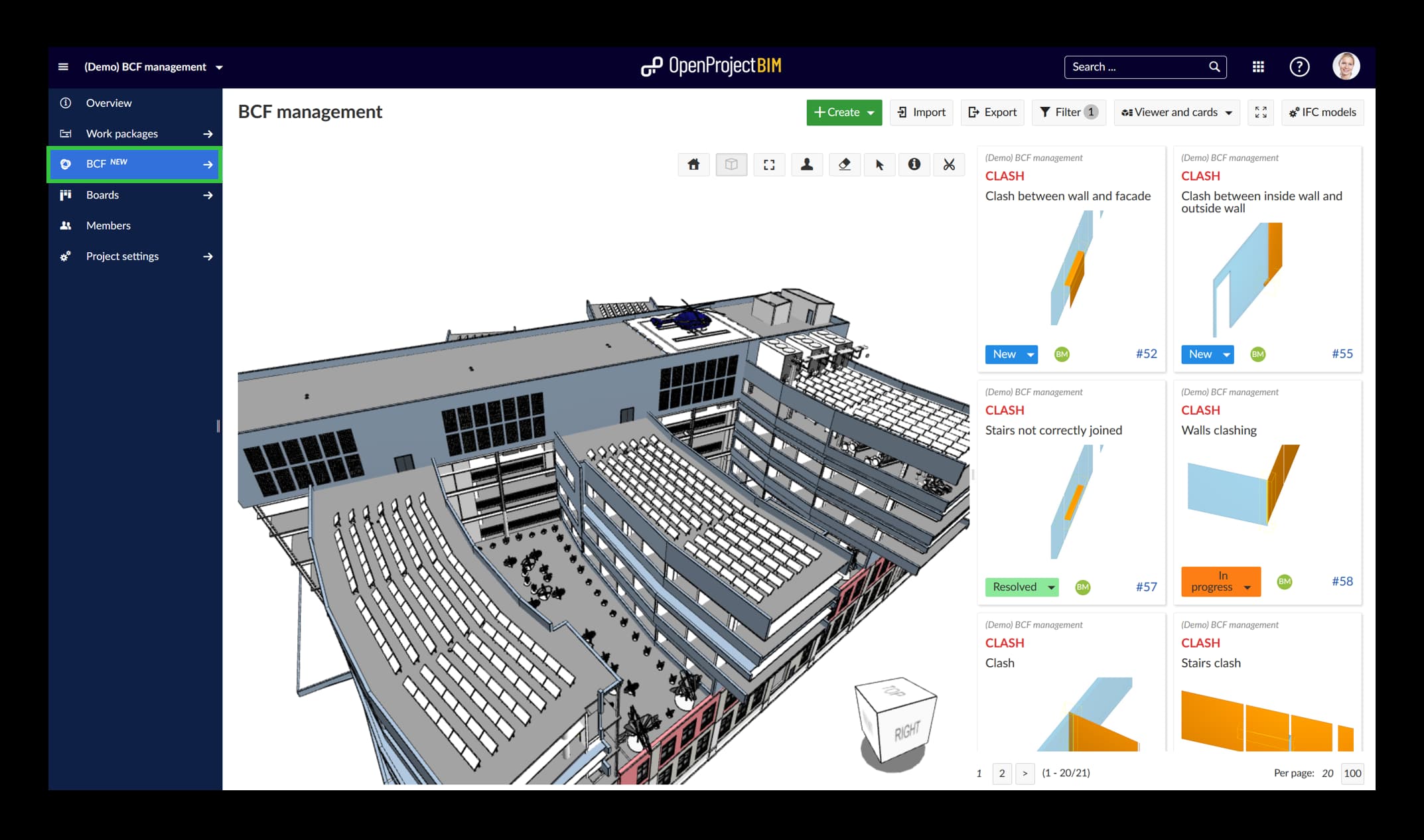
1. How do you manage multiple BIM projects simultaneously and ensure timely delivery?
Approach
Highlight your organisational skills, use of project management tools, and ability to prioritise tasks effectively.
Sample Answer:
"Managing multiple BIM projects requires careful planning and prioritisation. I use project management tools like Microsoft Project and Trello to track progress and deadlines. I also maintain clear communication with all stakeholders and hold regular coordination meetings to address any issues promptly. This approach ensures that all projects stay on schedule and are delivered on time."
2. Can you provide an example of a successful BIM implementation that you led or were a part of?
Approach
Describe a specific project where you led or contributed to successful BIM implementation, detailing your role, challenges faced, and the outcomes achieved.
Sample Answer
"I led the BIM implementation for a high-rise office building project. My responsibilities included developing the BIM execution plan, setting up collaboration protocols, and training the team on BIM software. Despite initial resistance, we successfully integrated BIM into the workflow, resulting in improved coordination, reduced errors, and significant time savings."
3. How do you handle last-minute changes or scope adjustments in a BIM project?
Approach
Discuss your flexibility, problem-solving skills, and ability to communicate effectively with stakeholders to manage changes.
Sample Answer
"I handle them by maintaining an adaptable mindset and clear communication channels with all stakeholders. For example, when a client requested major design changes late in the project, I quickly assessed the impact, communicated the necessary adjustments to the team, and updated the BIM model accordingly, ensuring minimal disruption to the project timeline."
Also Check out: Salaries and Career Growth of BIM Professionals in India
C. Industry Standards and Protocols
1. How do you ensure your BIM models comply with local building codes and industry standards?
Approach
Explain your process for staying informed about relevant codes and standards, and how you incorporate them into your BIM models.
Sample Answer
"I ensure compliance with local building codes and industry standards by staying updated through continuous learning and professional development. I regularly attend industry seminars and review updates from regulatory bodies. During the modelling process, I use BIM templates and standards that incorporate these regulations, and I conduct regular audits to verify compliance."
2. How do you stay informed about the latest developments in BIM standards and protocols?
Approach
As one of the most common interview questions and answers, here you must emphasise your commitment to ongoing learning through various channels such as professional organisations, conferences, webinars, and publications.
Sample Answer
"I stay informed about the latest developments in BIM standards and protocols by being an active member of accredited professional organisations. I regularly attend industry conferences and webinars, and subscribe to leading BIM publications. This continuous learning helps me stay ahead of trends and incorporate best practices into my work."
3. How do you ensure data security and integrity in your BIM models?
Approach
Discuss the measures you take to protect data, such as access controls, regular backups, and secure file-sharing practices.
Sample Answer
"I ensure this by implementing strict access controls, where only authorised personnel can access or modify the BIM models. I also schedule regular data backups and use secure file-sharing platforms to protect sensitive information. Additionally, I conduct periodic security audits to identify and mitigate potential risks."
Soft Skills and Problem-Solving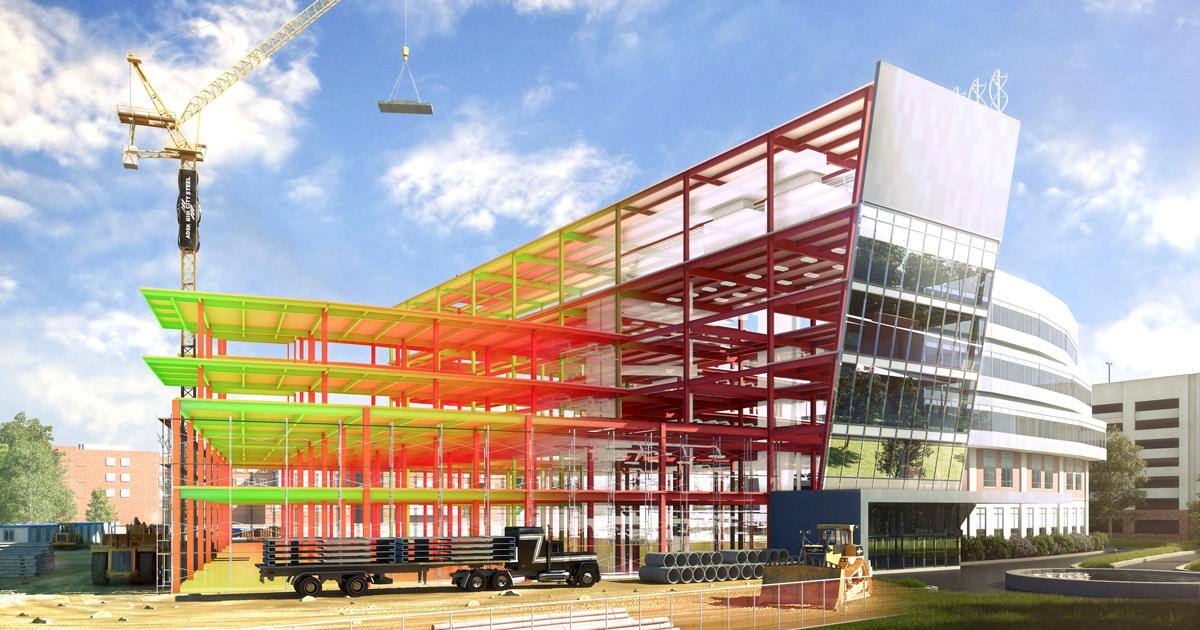
1. How do you handle conflicts or disagreements among team members during a BIM project?
Approach
Demonstrate your conflict resolution skills, emphasising communication, empathy, and finding mutually agreeable solutions.
Sample Answer
"When conflicts arise, I address them by facilitating open and respectful communication. I listen to all parties involved to understand their perspectives and work towards finding a common ground. For example, during a BIM project, there was a disagreement between the architectural and structural teams. I organised a meeting where both sides could express their concerns, and we collaboratively developed a solution that met everyone's needs."

2. What strategies do you use to foster collaboration and teamwork in a BIM environment?
Approach
Highlight your methods for promoting a collaborative culture, such as regular meetings, clear communication protocols, and team-building activities.
Sample Answer
"To foster collaboration, I establish clear communication protocols and hold regular coordination meetings to ensure everyone is aligned. I also encourage using collaborative tools like BIM 360, which allows team members to share and review models in real time. Additionally, I organise team-building activities to strengthen relationships and promote a positive work environment."
3. Describe a time when you had to think creatively to solve a problem on a BIM project.
Approach
Provide a specific example that showcases your creativity and problem-solving skills, detailing the problem, your approach, and the outcome.
Sample Answer
"On a recent project, we encountered significant model clashes that threatened the project's timeline. Instead of delaying the project, I proposed using a combination of parametric design and automated clash detection to quickly identify and resolve conflicts. This creative approach solved the immediate issue and also improved our overall workflow, saving time and reducing errors."
C. Future Goals and Aspirations
1. What kind of projects or clients are you most passionate about working with, and why?
Approach
Reflect on your interests and experiences to identify the types of projects or clients that excite you and align with your career goals.
Sample Answer
"I am particularly passionate about working on sustainable building projects because I believe in the importance of creating environmentally friendly and energy-efficient structures. Working with clients who prioritise sustainability allows me to apply my skills in innovative ways and contribute to a positive impact on the environment."
2. Where do you see yourself in five years as a BIM Consultant?
Approach
Discuss your career aspirations, focusing on how you plan to grow within the BIM field and contribute to your future employer's success.
Sample Answer
"In five years, I see myself as a senior BIM Consultant, leading large-scale projects and mentoring junior team members. I aim to expand my expertise in emerging BIM technologies and contribute to developing industry standards. My goal is to help my future employer stay at the forefront of BIM innovation and deliver exceptional project outcomes."
Also Check out: André Malheiro On Working With BIM As A BIM Consultant And A Firm Owner
3. What role do you see BIM playing in the future of the AEC industry, and how do you want to contribute to that vision?
Approach
Share your vision for the future of BIM in the AEC industry and how you plan to be a part of that evolution.
Sample Answer
"I believe BIM will continue to revolutionise the AEC industry by enhancing collaboration, reducing errors, and improving project efficiency. I see BIM evolving with advancements in AI and machine learning, further automating design and construction processes. I want to contribute to this vision by staying at the forefront of these technological advancements and driving their adoption in my projects, ultimately helping to shape the future of the industry."
In Conclusion
The demand for BIM consultants continues to grow as AEC firms adopt digital-first workflows, lean coordination practices, and data-driven construction methods. Professionals who understand BIM implementation, clash resolution, and model-based decision-making are now essential to project success and organizational efficiency.
To stand out in interviews, focus on demonstrating software expertise, problem-solving ability, and real-world BIM applications, not just theoretical knowledge. These interview questions will guide you toward answering confidently and showcasing your readiness to support BIM processes at scale.
If you want to strengthen your technical and strategic BIM foundation, explore the BIM Professional Course for Architects by Novatr. It provides hands-on BIM training, mentorship, and project-based learning designed for real industry deployment. Start upgrading your skills today and unlock global BIM career opportunities.
For more insights on BIM careers, roles, and trends, visit our resource page.
FAQs
1. What is the role of a BIM consultant?
A BIM consultant guides companies in adopting and managing BIM workflows. They help teams use BIM tools correctly, improve coordination, resolve model issues, and maintain standards. Their role supports better project planning, increased accuracy, and smoother communication among all disciplines involved in a construction project.
2. How do I prepare for a BIM interview?
Start by reviewing the job role, updating your technical skills, and preparing examples from past projects. Study BIM standards, coordination workflows, and common interview questions. Practice explaining your approach clearly and confidently to show your readiness for a BIM consulting position.
3. What are the 5 steps of BIM?
The five key steps include planning, modeling, coordination, scheduling, and facility management. These stages help teams create accurate digital models, avoid clashes, improve collaboration, streamline construction activities, and manage building data efficiently throughout the project life cycle.
4. Is BIM better than CAD?
Yes, BIM is more advanced than CAD because it creates intelligent 3D models with data. BIM supports better coordination, reduces errors, and improves decision-making. CAD is mainly for 2D drafting, while BIM optimizes the entire project, from design to construction and building operations.
5. What are the four pillars of BIM?
The four pillars include technology, people, processes, and policy. Technology refers to software and tools, people manage collaboration, processes guide workflows, and policy ensures standards and compliance. Together, these pillars support smooth BIM adoption and project success.


 Thanks for connecting!
Thanks for connecting!

.png)
.jpg)

.jpeg)
